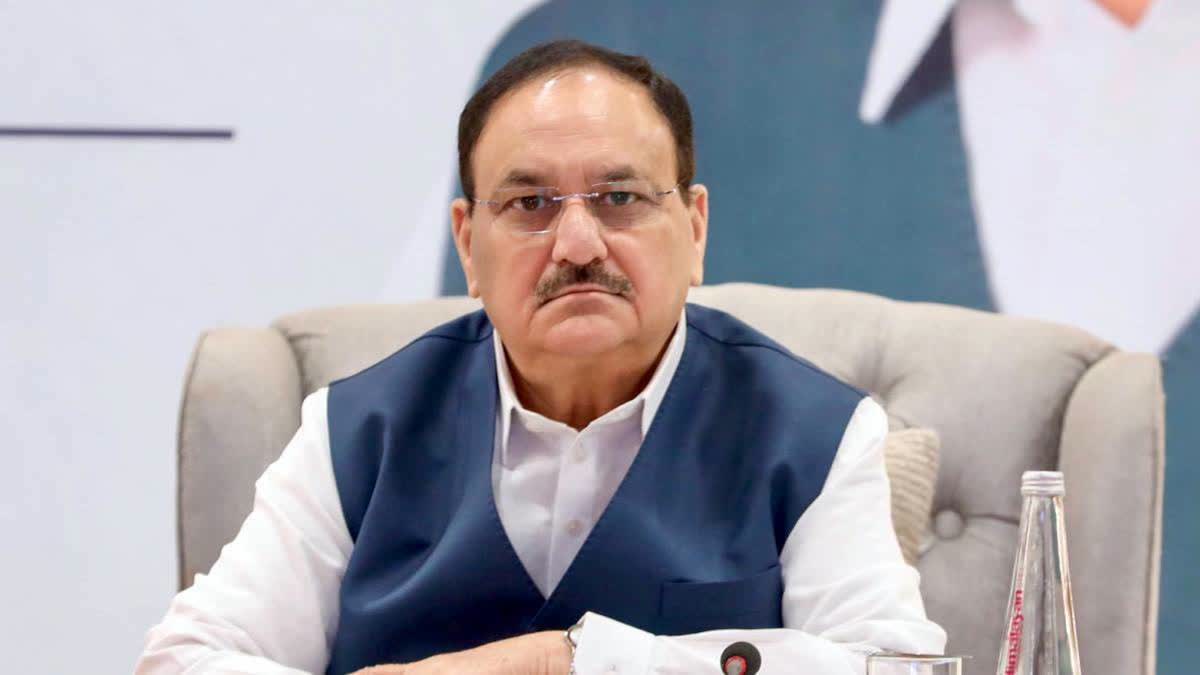New Delhi: Union Health Minister JP Nadda on Friday said that medical colleges in India have increased by 8.07 per cent from 706 in 2023-24 to 766 in 2024-25. The MBBS and PG seats have increased by 125 and 127 per cent respectively from 2013-14 to 2024-25, Nadda added.
“There has been a 98 per cent increase in medical colleges from 387 in 2013-14 to 766 in 2024-25. During the same period, 379 new medical colleges have been established and, presently there are 766 (Government: 423, Private: 343) medical colleges in the country,” Nadda said while briefing reporters on the completion of the first 100-days of Narendra Modi Government 3.0.
Stressing that the rise in MBBS and PG seats would lead to an increase in the availability of doctors in the healthcare system, Nadda said, “There is an increase of 6.30 per cent in MBBS seats from 1,08,940 in 2023-24 to 1,15,812 in 2024-25. MBBS seats have increased by 64,464 (125%) from 51,348 seats (2013-14) to 1,15,812 seats (2024-25).”
Referring to the PG seats, Nadda said that there is an increase of 5.92 per cent in PG seats from 69,024 in 2023-24 to 73,111 in 2024-25. During the last ten years, the number of PG seats increased by 39,460 (127%) from 2013-14 (31,185 seats) to 2024-25 (73,111 seats).
New AIIMS at Darbhabga:
The Union minister further informed that Prime Minister Narendra Modi will lay the foundation stone for the new AIIMS at Darbhanga next month.
The Union Cabinet, in 2020, approved setting up of a new AIIMS at Darbhanga at an estimated cost of Rs 1264 crore. Nadda said that the issue of allotment of land for AIIMS Darbhanga, which was pending for over three years has been finally settled and the Government of Bihar has allotted and handed over 150.13 acres of land last month, required for setting up the AIIMS, Darbhanga campus.
He further noted that AIIMS institutions would serve to fill the gap in affordable tertiary healthcare services and reduce out of pocket expenditure.
Union Ministers of State for Health and Family Welfare, Prataprao Ganpatrao Jadhav and Anupriya Singh Patel were also present during the press briefing.
Ayushman Bharat PM-JAY:
Nadda said that the recent announcement of expansion of the Ayushman Bharat PMJAY scheme to include all senior citizens, irrespective of income group, aged 70 years and above will potentially benefit around 6 crore individuals across 4.5 crore families. Highlighting that Ayushman Bharat is the world’s largest publicly funded health coverage program, Nadda said that the expanded scheme will be implemented from October this year.
U-WIN Portal:
U-WIN Portal has been developed for full digitisation of vaccination services for complete vaccination record of pregnant women and children from birth to 17 years under the Universal Immunization Programme. The citizen-centric services of the digital platform include ‘Anytime Access’ and ‘Anywhere’ vaccination services, Self-Registration by citizens using the U-WIN web-portal or the U-WIN citizen mobile application, automated SMS alerts, universal QR-based eVaccination Certificate and utility to create their Ayushman Bharat Health Account (ABHA) ID for themselves and Child ABHA ID for their children.
The portal is in 11 regional languages including Hindi. As on September 16, atleast 6.46 crore beneficiaries have been registered, 1.04 crore vaccination sessions have been held and 23.06 crore administered vaccine doses have been recorded on the portal.
New TB Treatment Regimen and Made-in-India TB Diagnostics:
Giving a major relief to the TB patients, a shorter and more efficacious treatment regimen has been initiated for use under the National TB Elimination Programme (NTEP) which would help in reducing the treatment duration from 9-12 months to 6 months. Nadda said that his Ministry in consultation with the State/UT governments is preparing a detailed rollout plan for logistics and training of health professionals for the introduction of this new regimen early next year. He also highlighted the expected reduction in duration of the treatment regimen in approximately 75,000 DRTB cases across the country.
Deployment of BHISM Cubes:
The Health Minister said that BHISHM Cubes are intended to provide emergency lifesaving clinical care in the event of disaster/public health emergencies. BHISM cubes have the capacity to handle about 200 cases of diverse nature in emergency situations such as trauma, bleeding, burns, fractures and others. In the 1st Phase, BHISHM Cubes will be placed in 25 AIIMS and Institutes of National Importance (INIs) for rapid deployment in the respective region in case of disaster / health emergencies.
Operationalisation of National Medical Register:
The National Medical Register (NMR) is a comprehensive dynamic database for all allopathic (MBBS) registered doctors in India. NMR is linked with the Aadhaar ID of the doctors that ensures the individual’s authenticity. Nadda said that NMR being a key component of the country's Ayushman Bharat digital mission, it would be part of Healthcare Professional Registry (HPR).
He said that NMR will ensure provision of data covering details of around 13 lakh doctors in the country - State-wise, those who have left the country, those who have lost their license to practice, or details of doctors who have lost their lives.
Completion of Super Specialty Blocks:
Completion of construction works of Super Specialty Blocks (SSB) has been taken up as upgradation projects of existing Government Medical Colleges under PMSSY of four Government Medical Colleges in Bihar, including Jawaharlal Nehru Medical College, Bhagalpur, Anugrah Narayan Magadh Medical College, Gaya, Sri Krishna Medical College, Muzaffarpur and Darbhanga Medical College and Hospital.
Food Import Rejection Alerts:
Nadda said that a Food Import Rejection Alerts (FIRA), an online portal designed to notify the public and relevant food safety authorities about food import rejections at Indian borders and training of food street vendors by the FSSAI, has been introduced. The portal was launched today at the second edition of the Global Food Regulators Summit 2024 hosted by FSSAI at Bharat Mandapam.
Read more
Doctor-Patient Ratio in India Is Better Than WHO’s Standard: Centre



